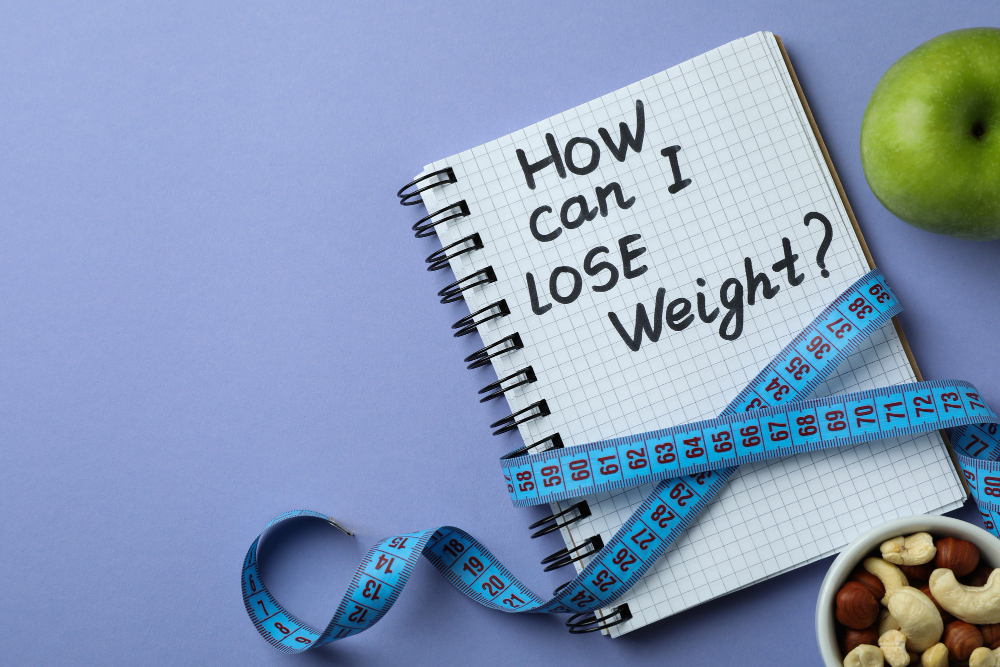Lose 10 Pounds in Just 1 Week? Discover the Truth!
Contents
Whether it’s for an upcoming event, a beach vacation, or simply a personal goal, rapid weight loss promises quick results. But is it truly achievable? More importantly, is it safe?
Lose 10 Pounds in 7 Days?😳🔥The Truth REVEALED! 🥗🏃♀️

Losing 10 pounds in one week is possible but often involves extreme dieting or exercise. This rapid weight loss is usually water weight, not fat, and can be harmful. Sustainable weight loss requires a balanced diet, exercise, and healthy lifestyle changes for long-term results.
At Nuvectra Medical, we prioritize your health and well-being. Let’s delve into the realities of rapid weight loss, its potential risks, and sustainable strategies for effective weight management.
Understanding Weight Loss Dynamics
Weight loss fundamentally revolves around creating a calorie deficit, burning more calories than consumed.
This deficit forces the body to utilize stored energy, primarily fat, to meet its needs. However, the body doesn’t exclusively burn fat during rapid weight loss.
Instead, it often taps into glycogen stores, which are bound with water, leading to significant water weight loss. This initial drop on the scale can be misleading, as it’s not indicative of fat loss.
Moreover, extreme calorie restriction can prompt the body to break down muscle tissue for energy, leading to muscle loss and a decreased metabolic rate.
The Risks of Rapid Weight Loss
Nutritional Deficiencies
Drastically reducing calorie intake can lead to insufficient consumption of essential nutrients. Diets that eliminate entire food groups or severely limit calorie intake may result in deficiencies in vitamins and minerals such as calcium, vitamin D, iron, and B vitamins. These deficiencies can manifest as fatigue, weakened immunity, and other health issues.
Muscle Loss
Rapid weight loss often leads to a loss of muscle mass along with fat. Muscle tissue is metabolically active, meaning it burns more calories at rest. Losing muscle can slow down your metabolism, making it harder to maintain weight loss in the long term.
Gallstones
Losing weight too quickly increases the risk of developing gallstones—hardened deposits in the gallbladder that can cause pain and digestive issues. Rapid weight loss can disrupt the balance of bile salts and cholesterol, leading to gallstone formation.
Dehydration and Electrolyte Imbalance
Extreme diets or excessive exercise can lead to dehydration and imbalances in essential electrolytes like sodium and potassium. These imbalances can cause symptoms ranging from dizziness and fatigue to more severe complications like irregular heart rhythms.
Psychological Effects
The pressure to lose weight rapidly can lead to unhealthy relationships with food, including disordered eating patterns. It can also cause mood swings, irritability, and decreased motivation, making it challenging to sustain weight loss efforts.
Why Sustainable Weight Loss is More Effective
Long-Term Results
Studies have shown that individuals who lose weight gradually (1-2 pounds per week) are more likely to maintain their weight loss over time compared to those who lose weight rapidly.
Preservation of Muscle Mass
Gradual weight loss, combined with regular strength training, helps preserve lean muscle mass, ensuring that the weight lost is primarily fat.
Improved Nutritional Intake
A balanced, moderate approach to weight loss allows for a diverse diet that includes all essential nutrients, supporting overall health and well-being.
Enhanced Metabolic Health
Sustainable weight loss strategies improve insulin sensitivity, blood pressure, and cholesterol levels, reducing the risk of chronic diseases.
10 Pounds in 1 Week?😱💥Try THIS Rapid Weight Loss Plan!🥒🏋️♂️🔥

Effective Strategies for Sustainable Weight Loss
Balanced Diet
Focus on a diet rich in whole foods—vegetables, fruits, lean proteins, whole grains, and healthy fats. Avoid processed foods, sugary beverages, and excessive saturated fats.
Regular Physical Activity
Incorporate both aerobic exercises (like walking, cycling, or swimming) and strength training into your routine. Aim for at least 150 minutes of moderate-intensity exercise per week.
Mindful Eating
Pay attention to hunger and fullness cues. Eat slowly, savor your meals, and avoid distractions like television or smartphones during meals.
Adequate Sleep
Ensure you get 7-9 hours of quality sleep each night. Poor sleep can disrupt hormones that regulate hunger and appetite, leading to weight gain.
Stress Management
Chronic stress can lead to emotional eating and weight gain. Practice stress-reducing techniques such as meditation, deep breathing, or yoga.
Stay Hydrated
Drinking enough water supports metabolism and can help control appetite. Aim for at least 8 glasses of water daily.
Setting Realistic Goals
Instead of aiming to lose 10 pounds in a week, set achievable goals. Aiming for 1-2 pounds per week is considered safe and sustainable. Remember, weight loss is a journey, not a race.
Conclusion
While the idea of losing 10 pounds in just one week is enticing, it’s essential to consider the potential risks and the sustainability of such rapid weight loss.
Prioritizing your health by adopting gradual, consistent, and healthy lifestyle changes will not only help you achieve your weight loss goals but also maintain them in the long term.
At Nuvectra Medical, we’re committed to supporting you on your journey to better health. Remember, it’s not just about the number on the scale, it’s about overall well-being.
.